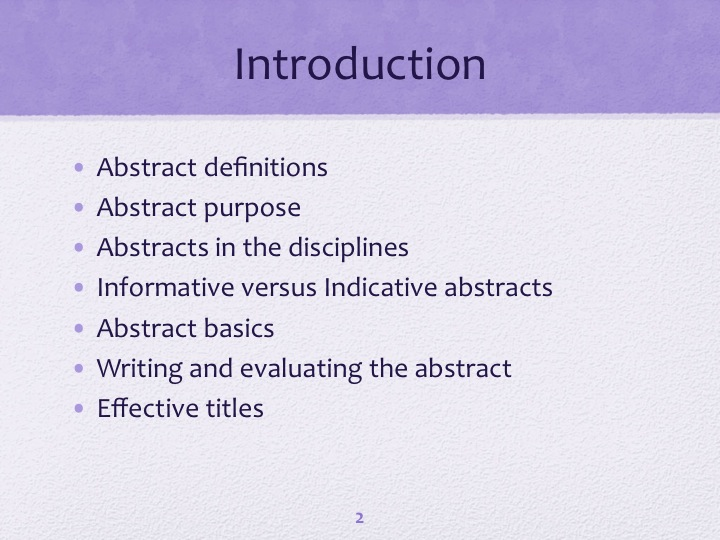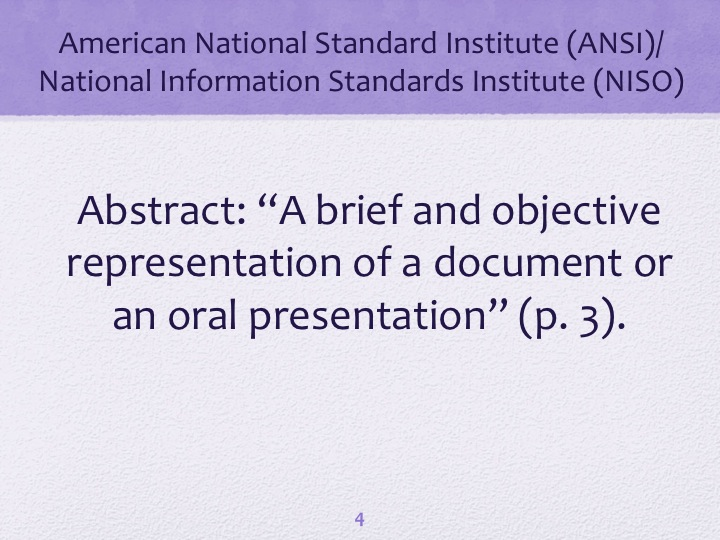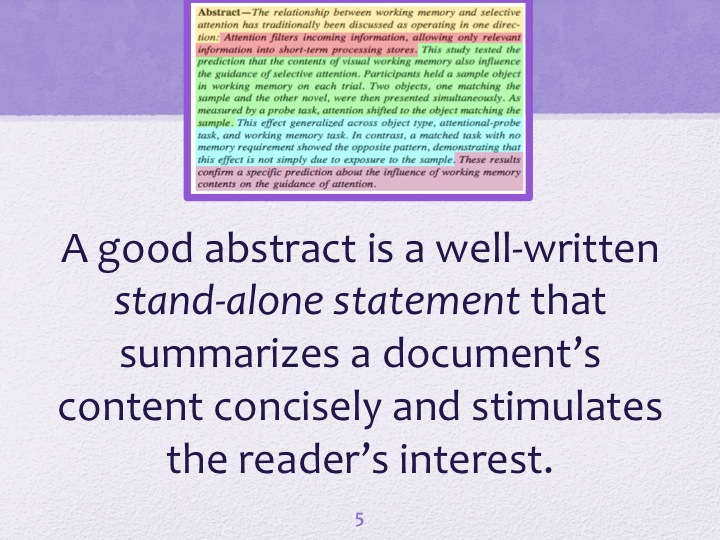| << Chapter < Page | Chapter >> Page > |
Students will learn that abstracts obey specific document formats and guidelines based on the parameters established by the publication media, conference, or oral presentation.
Students will learn the definition of abstract, their types, formats, elements, lengths, purpose, and criteria. Students will also learn about appropriate titles and their guidelines for research projects and reports.
PowerPoint Presentation:
Additional materials provided by the instructor: Exemplary abstracts and titles in the specific discipline.
Additional writing and grammar exercises for engineers and scientists can be accessed online:
Alley, M. (2010): http://www.writing.engr.psu.edu/exercises/
Effective Writing for Business and Technology: http://www.technical-expressions.com/summaries/exercises/index.html
Gillet, A. (2012): http://www.uefap.com/writing/genre/abstract.htm
Widom, J. (2006): http://infolab.stanford.edu/~widom/paper-writing.html
Slide # 2: Introduction. This slide presents a synopsis of the information contained in the presentation.

Slide # 3: Abstract Definitions. The instructor will present this slide with the definitions of the word “abstract”. Students will discuss and determine which of the five meanings correctly define research abstracts. Students should notice the part of speech indicated for each definition. When the slide is clicked (to advance), the correct definition will be underlined.

Slides # 4 and # 5: These slides provide the definitions for abstracts. The first definition is from the American National Standard Institute (ANSI) and the National Information Standards Institute (NISO). The second is written by the module’s author.


Slide # 6: Purpose. Students should learn that abstracts have clear purposes, depending on the field of study, but that all abstracts should attract the attention of the reader and demonstrate that the study was worthwhile.

Slide # 7: Abstracts in the Disciplines. Slide # 8: Informative Abstract. Slide # 9: Indicative (or Descriptive Abstract).
The instructor should explain that there are two principal types of abstracts, depending on the discipline: Informative and Indicative (or Descriptive).
Informative abstracts are written for scientific or technical documents. Indicative abstracts are “best used for less-structured documents, such as editorials, essays, opinions or descriptions;” or longer works including “books, conference proceedings, directories, bibliographies, lists, and annual reports” (NISO, 1997, p. 3).

Notification Switch
Would you like to follow the 'Civis project - uprm' conversation and receive update notifications?